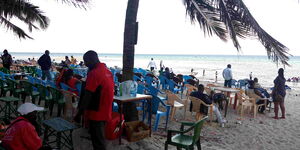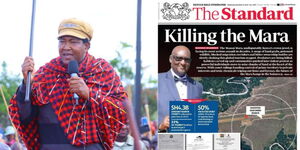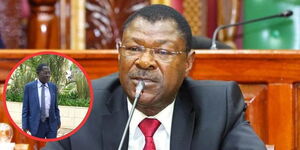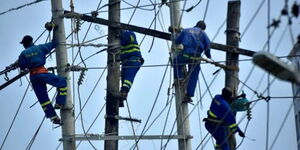Deputy President William Ruto has constantly reiterated that he has always been with God and the people when facing tribulations.
In his rhetoric, he also pointed out that the ‘deep state’ and ‘the system’ alleged to be a cabal of power brokers was hell-bent on preventing him from succeeding President Uhuru Kenyatta.
“They’ll come with the system, but we will be there with the people and God and see who wins,” Ruto stated in several rallies.
From selling chicken and charcoal to wearing shoes for the first time in secondary school to being one of the longest serving Member of Parliament, being in the opposition and the first deputy president - here are the indicators that Ruto would win the presidency.
Assembling of a Strong Campaign Team
Deputy President William Ruto assembled a very solid campaign team which coordinated his campaigns around the country.
Ruto hired both technocrats and politicians to lead his campaign, dividing the team into regions and emphasisisng on focusing on grassroots campaigns.
From veteran politicians who are serial winners including two-time governor Josephat Nanok to leading media professionals including former Citizen TV journalist Hussein Mohammed, the team ensured that his message was delivered.
They reiterated his bottom-up approach, a model based on uplifting the economy and putting money in people’s pockets.
“Yani tunanzia hapa chini (bottom) mpaka hapa juu (up). Yani bottom up. (We start from bottom to up),” Ruto emphasised, speaking against the trickle down economic model he accused of propelling graft and embezzlement of funds.
Heeding to the Opinion Polls
Opinion polls in the days leading to the election indicated that Ruto was trailing Raila. This pushed him to embarked on a marathon campaign tour in the regions where he was trailing Raila Odinga.
In addition, he also campaigned in his perceived strongholds including the Rift Valley and in Mount Kenya, to counter any inroads that Odinga and running mate Martha Karua made in the region.
Handling Sibling Rivalry in Kenya Kwanza
The president-elect managed to water down the sibling rivalry in his Kenya Kwanza coalition. He managed to bring candidates to a consensus by offering them incentives or asking them to vie in lower ranks.
Ruto further made the right political decision in picking a running mate from the Mount Kenya region with Rigathi Gachagua and Kithure poised as the best candidates. He also ensured that none of them decamped from his coalition after the selection.
In a daring move that proved successful, he sat on the fence in the Kiambu Gubernatorial race, allowing candidates Moses Kuria, Kimani Wa Matangim Jungle Wainaina and William Kabogo to battle it out at the ballot.
Picking the Right Candidate
Deputy President William Ruto ensures that the strongest candidate was always selected to fly the Kenya Kwanza flag. This manifested in the selection of candidates in the Nairobi, Kakamega and Kiambu races.
In Nairobi, UDA's Johnson Sakaja ended up beating Azimio candidate Polycarp Igathe in the gubernatorial race, despite the opponents clinching the senator and woman rep seats in the county.
After brokering a deal between Boni Khalwale and Cleophas Malala who both eyed the gubernatorial ticket in Kakamega, Khalwale settled for the senatorial seat. He ended up clinching the seat despite vying using a UDA ticket in Odinga's stronghold.
The Yellow Wave
With the ruling party, Jubilee, is in its death bed following the inevitable exit of its leader, President Uhuru Kenyatta from power. Ruto build a party that would step in, especially in the Mount Kenya Region.
Being a son of the Rift Valley, he was guaranteed support from the region and only had to pick a few votes in other parts of the country.
Furthermore, the president-elect sold the party as one that identified with the shortcomings of the majority of the voters in the country; the unemployed, the so-called 'children of a lesser God and a party for the youth.












